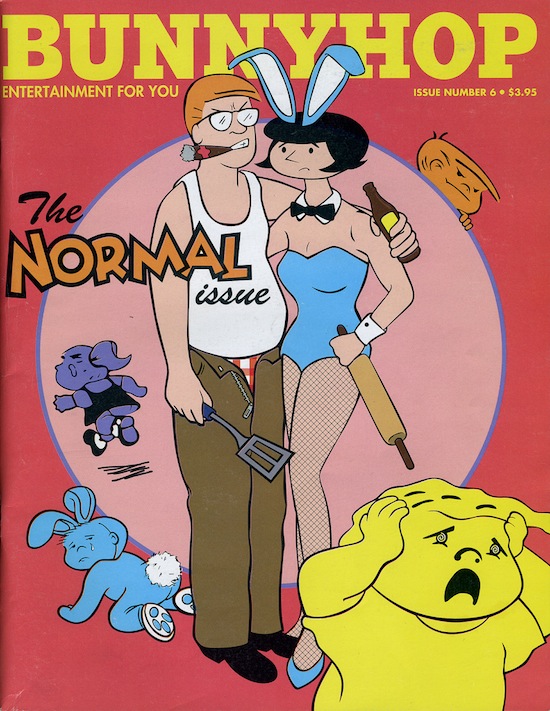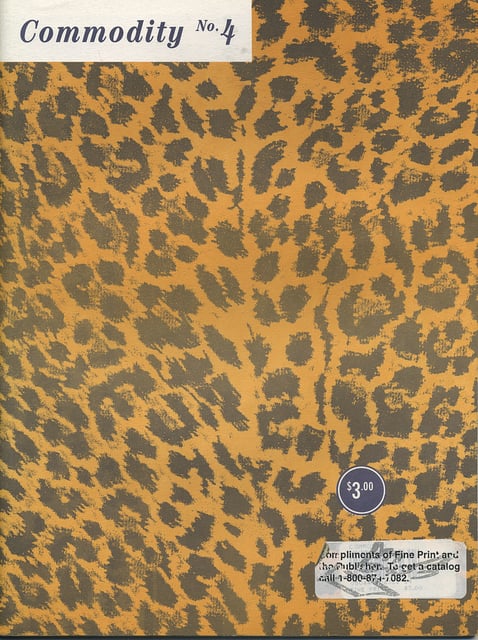Regression Toward the Zine (20)
By:
December 22, 2013
In this installment: Zinesters vs. journalists, a 1996 Q&A with Josh Glenn.
Here is a Q&A I did in 1996 with a Canadian journalist. As I recall, the interview was for the Ryerson Review of Journalism.
Q. How would you explain what a ’zine is to someone who’s unfamiliar with them?
A. To me, a zine is any independently produced publication driven by the passions and obsessions of its writers and editors, and not by the need to “capture” an imagined demographic group or to sell ads.

Q. Does content or format define a ’zine?
A. No. There are people in the zine community who believe that a zine should be photocopied instead of printed, say, or that it shouldn’t use color images, or that it must feature personal details about its creators, or that once its circulation climbs above 1,000 or some other arbitrary figure it’s no longer a zine. However, I define zines in a less mechanical fashion — it has to do with the publisher’s ethos. These days we’re seeing the emergence of zines like Bunnyhop, Ben is Dead, Crank, and Giant Robot — which feature color covers, professional-style layouts, large circulations, even lots of ads. But they’re zines, not magazines — because they’re driven by the passions and obsessions of their writers and editors. At the same time, supposedly edgy and indie periodicals like Bikini, Might, and Swing are not zines; they’re magazines. Or résumés, really.
Q. What’s the purpose of a ’zine?
A. We’re publishing the periodicals that we’d like to read.
Q. What can professional journalists learn from ’zines?
A. Drop the bogus mask of objectivity. Do your research in as objective a way as possible, then write up your findings in an emotionally, morally engaged fashion.

Q. Can ’zine makers learn from professional journalists, without compromising their lo-tech edge?
A. I recently spent a couple of years working at a magazine, and the only thing I do differently with my zine as a result is better copy editing. Sloppiness isn’t revolutionary, people.
Q. Does the fact that ’zines don’t rely on ads affect their content?
A. Zines can run ads and remain zines — as long as the editorial is driven by the passions of the editors and writers. I would go so far as to argue that Harper’s Magazine is a zine. I don’t care how many ads it has, it’s eccentric and passionate.
Q. Why do some ’zine makers resist the label “journalism,” even if that’s basically what they’re doing?
A. My definition of journalism is: investigating and reporting news. Most magazines are not doing journalism. Many newspaper staffers are not doing journalism. So I disagree with your premise, that zine publishers are doing journalism. Most of them are not.
Q. Can you say more about how mainstream journalism is limited by the pretense of objectivity?

A. The sociologist Robert Friedrichs, writing years ago, claimed that a social scientist should be a “minotaur.” Productively divided, that is to say: striving to be simultaneously objective and subjective. I think journalists should be minotaurs too.
Q. Zinesters rely on their own personal opinions — should journalists follow suit?
A. No.
This is a 25-part series in which HiLobrow editor Joshua Glenn, who from 1990–93 published the zine Luvboat Earth and from 1992–2001 published the zine/journal Hermenaut, bids a fond farewell to his noteworthy collection of zines, which he recently donated to the University of Iowa Library’s zine and amateur press collection. CLICK HERE to view the online finding aid for this collection.
